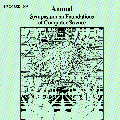We study the Densest Subgraph (DSG) problem under the additional constraint of differential privacy. DSG is a fundamental theoretical question which plays a central role in graph analytics, and so privacy is a natural requirement. But all known private algorithms for Densest Subgraph lose constant multiplicative factors as well as relative large (at least $\log^2 n$) additive factors, despite the existence of non-private exact algorithms. We show that, perhaps surprisingly, these losses are not necessary: in both the classic differential privacy model and the LEDP model (local edge differential privacy, introduced recently by Dhulipala et al. [FOCS 2022]), we give $(\epsilon, \delta)$-differentially private algorithms with no multiplicative loss whatsoever. In other words, the loss is purely additive. Moreover, our additive losses improve the best-known previous additive loss (in any version of differential privacy) when $1/\delta$ is at least polynomial in $n$, and are almost tight: in the centralized setting, our additive loss is $O(\log n /\epsilon)$ while there is a known lower bound of $\Omega(\sqrt{\log n / \epsilon})$. Additionally, we give a different algorithm that is $\epsilon$-differentially private in the LEDP model which achieves a multiplicative ratio arbitrarily close to $2$, along with an additional additive factor. This improves over the previous multiplicative $4$-approximation in the LEDP model. Finally, we conclude with extensions of our techniques to both the node-weighted and the directed versions of the problem.
翻译:暂无翻译





